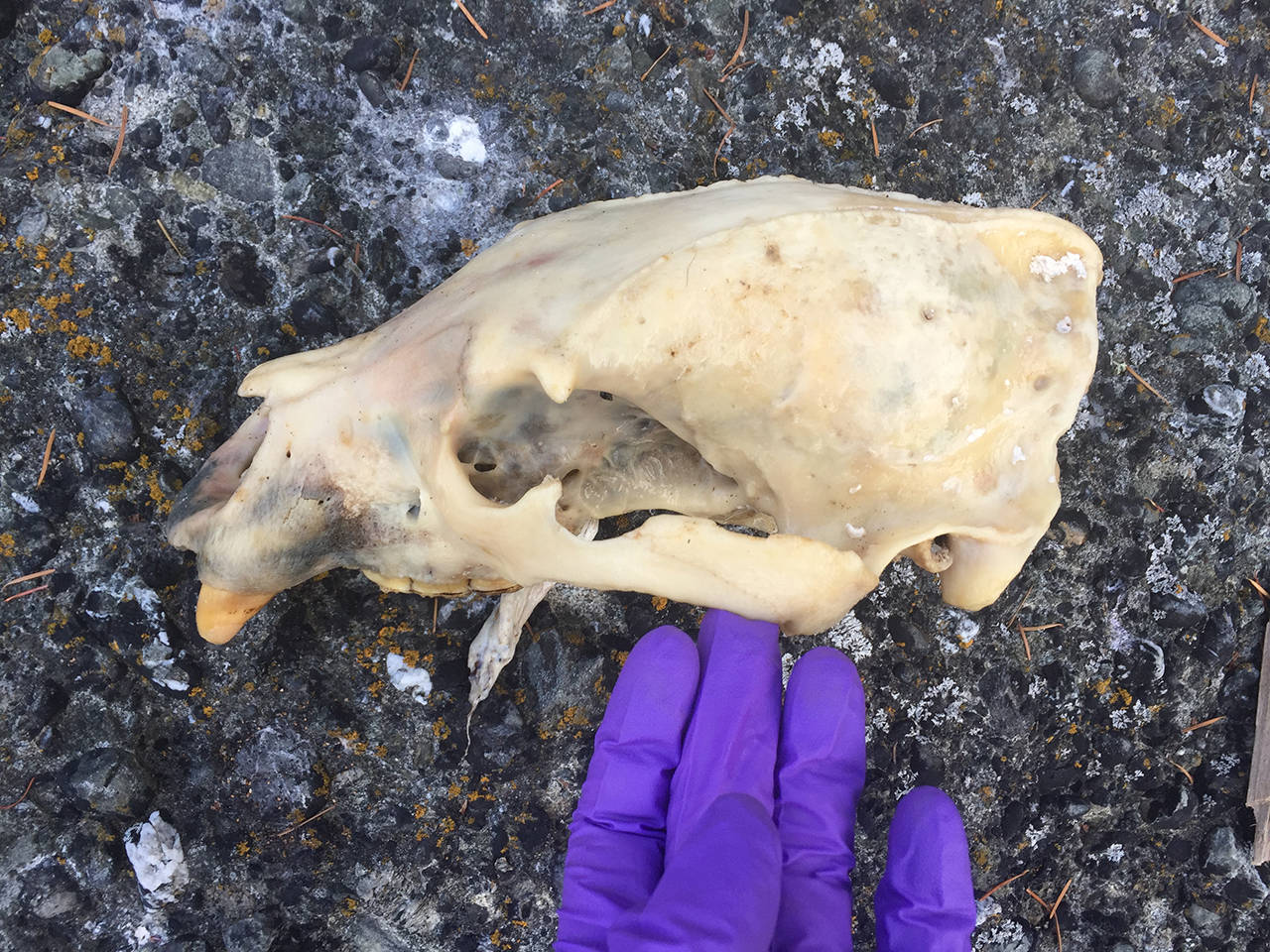For the second time in almost a year, a bear was found in the San Juan Islands.
This time, the sighting was only of remains.
At around 4 p.m., Wednesday, Aug. 8, county officials found the bones of a bear on Matia Island, which is an outer island of the San Juans. They suspect the bear drowned and most likely did not make it to land and live on any island.
According to Randy Gaylord, the county coroner, an 11-year-old boy, visiting with his family from Montana, reported possible human bones while kayaking. The boy thought he saw a human rib, hand bones and a skull tangled in kelp along the water line of a rock near Matia. That’s why the coroner and county sheriff were called.
However, Gaylord said mistaking the species’ bones makes sense.
“Bear claws are very similar to human hands,” he said, “but, of course, the skull is very different.”
The remains were mostly deteriorated, he explained, and included bones and some flesh. The date of the bear’s death could not be determined and the remnants were buried at sea to avoid others mistaking the bones for humans.
“It had been there for quite a while,” said San Juan County Sheriff Ron Krebs.
In May 2017, authorities believe a black bear swam to Orcas Island, where the roughly 5-foot, 250-pound mammal ate from garbage cans and bird feeders for about a week. It was captured on June 8 and taken to the mainland.
For Gaylord, being called to examine bear remains was a first.
“I suppose if a bear could make it to Orcas, there could be times when a bear did not make it too,” he said.
Matia is about 9 miles north of Orcas, and is a marine state park.
According to Stephanie Simek, with the Washington State Department of Fish and Wildlife, bears can swim long distances and the department has received reports of bears swimming across Puget Sound.
The WDFW website states that those who encounter bears should stay calm and upwind, avoid direct eye contact and identify themselves as a human by standing up, talking and waving their hands above their head. Do not approach the bear, particularly if cubs are present.



